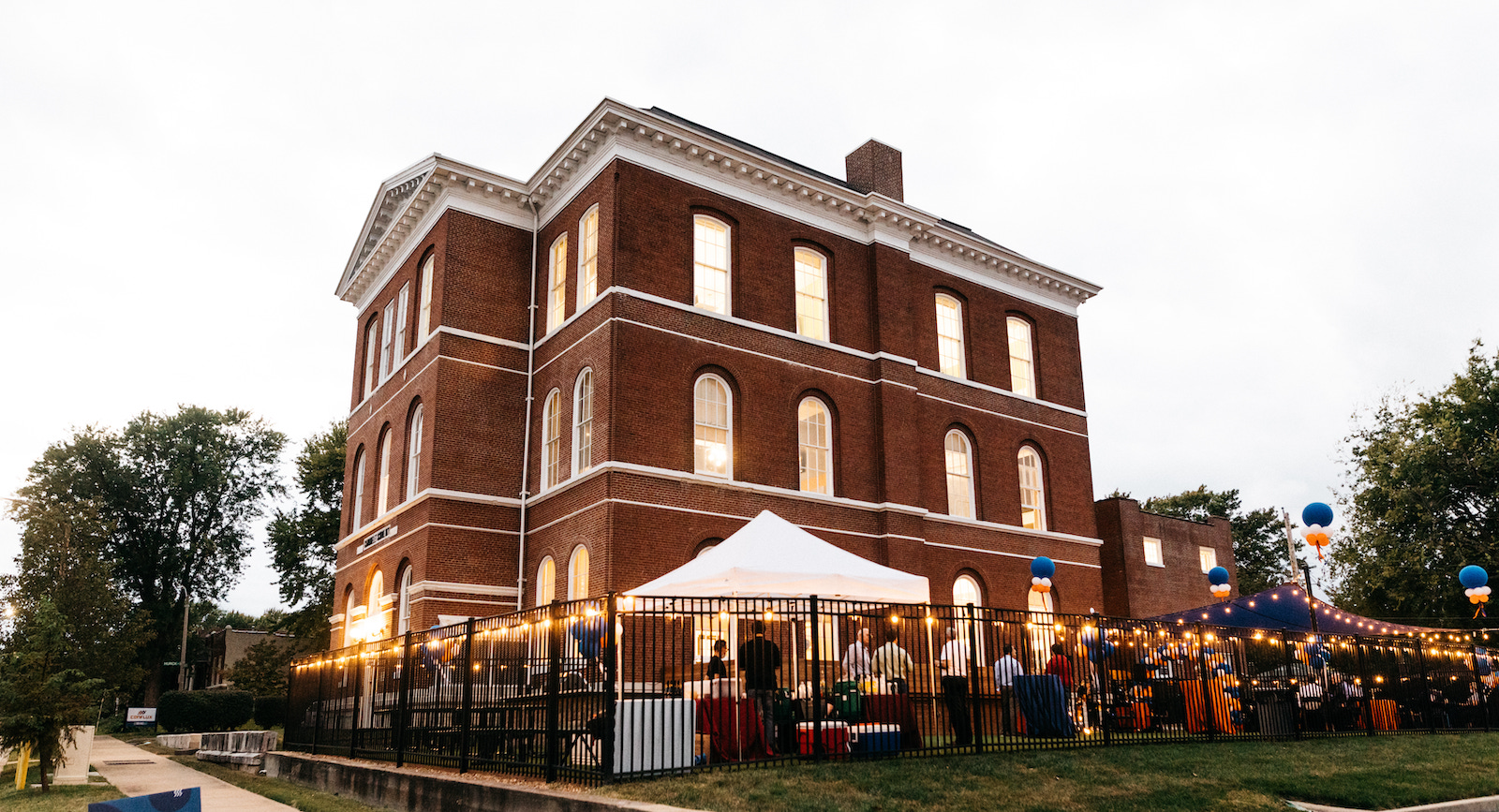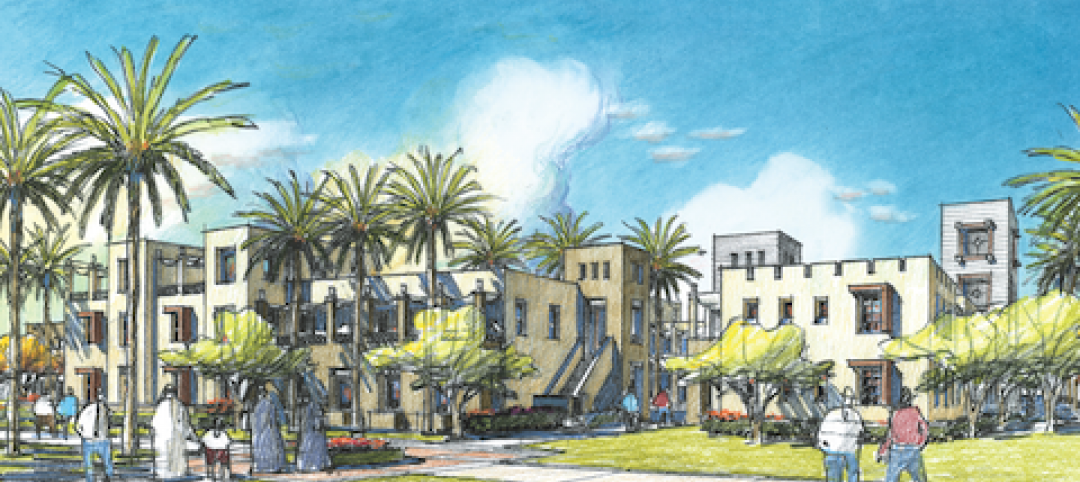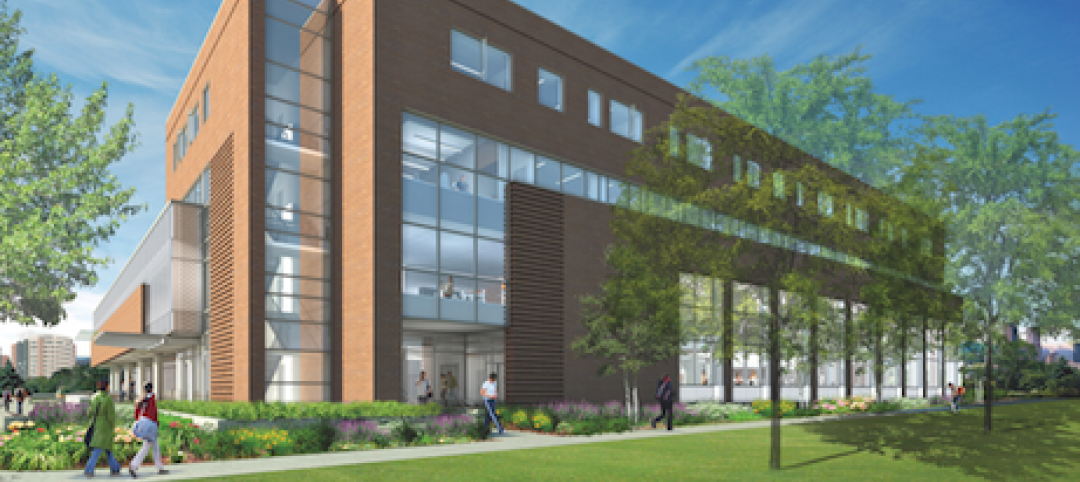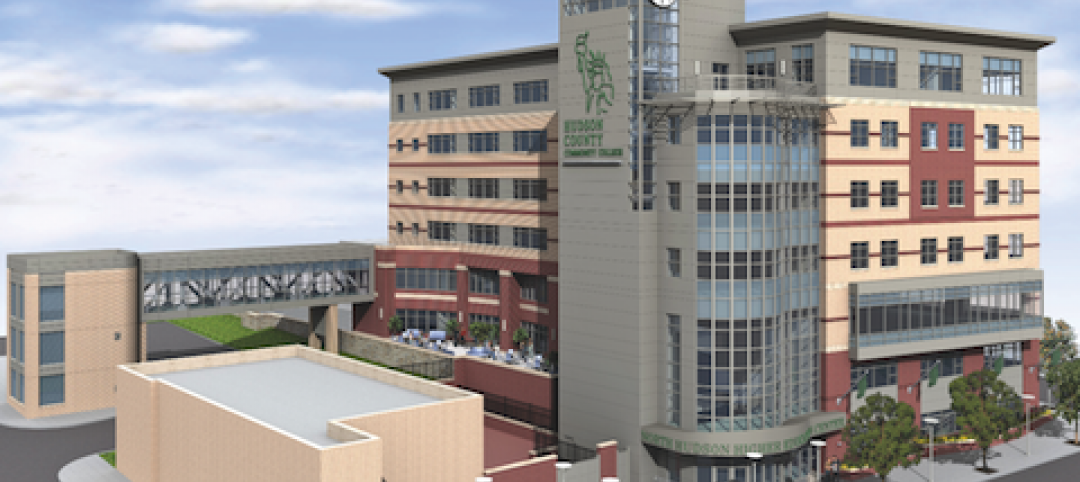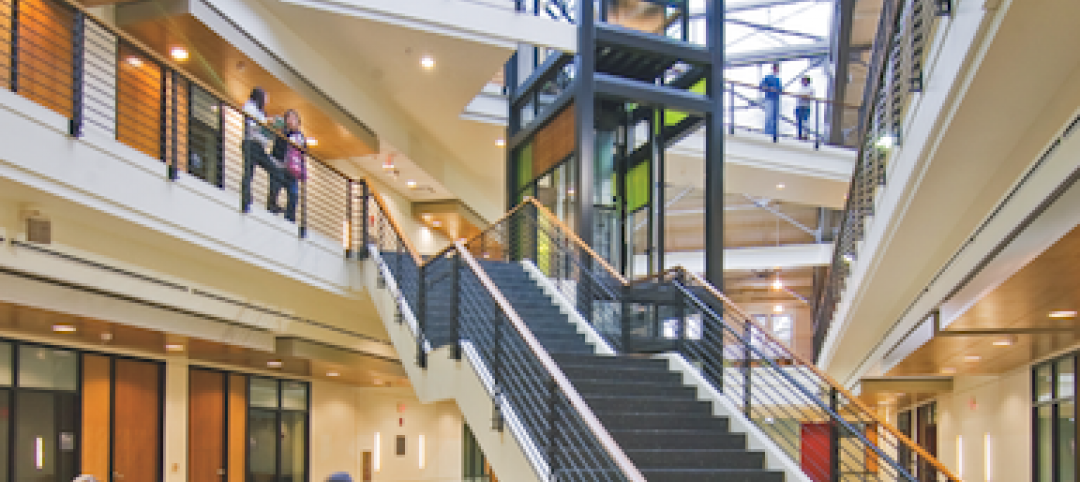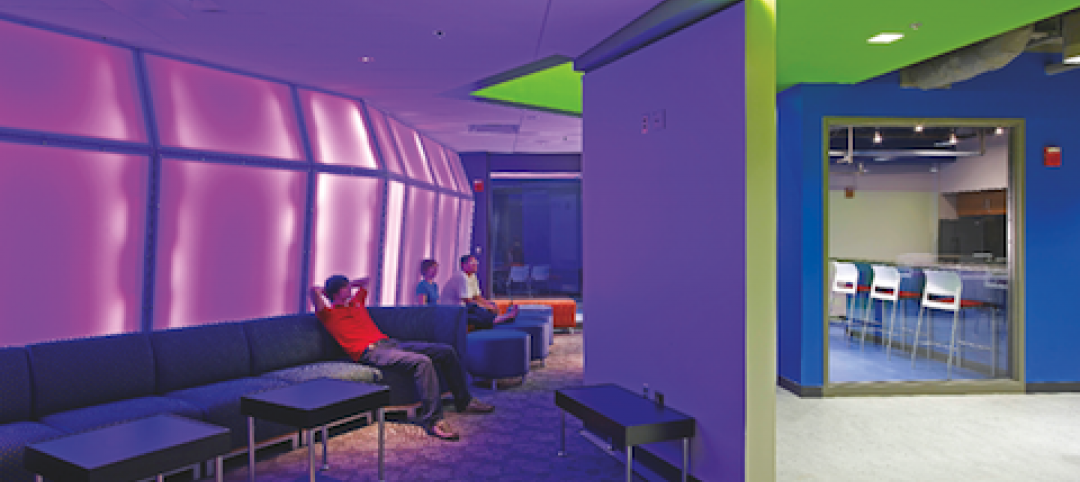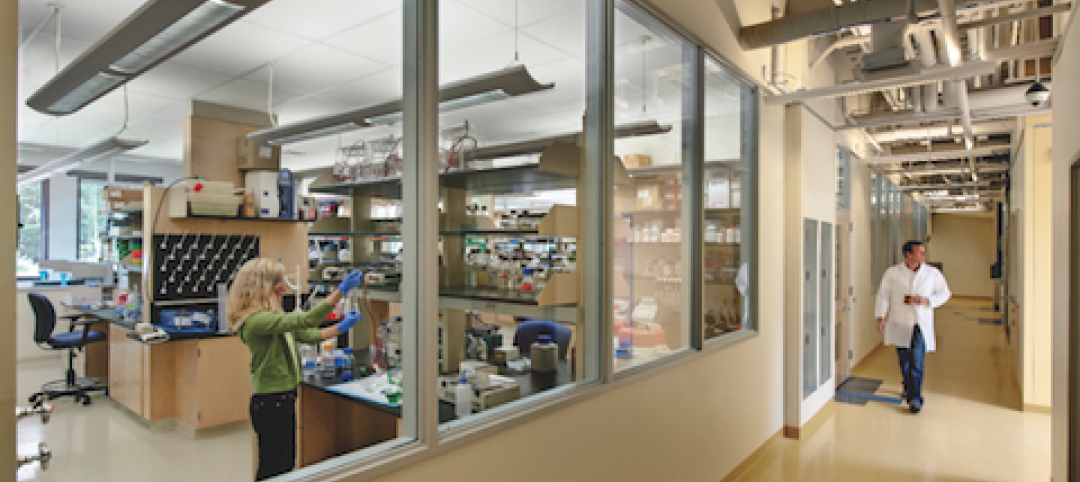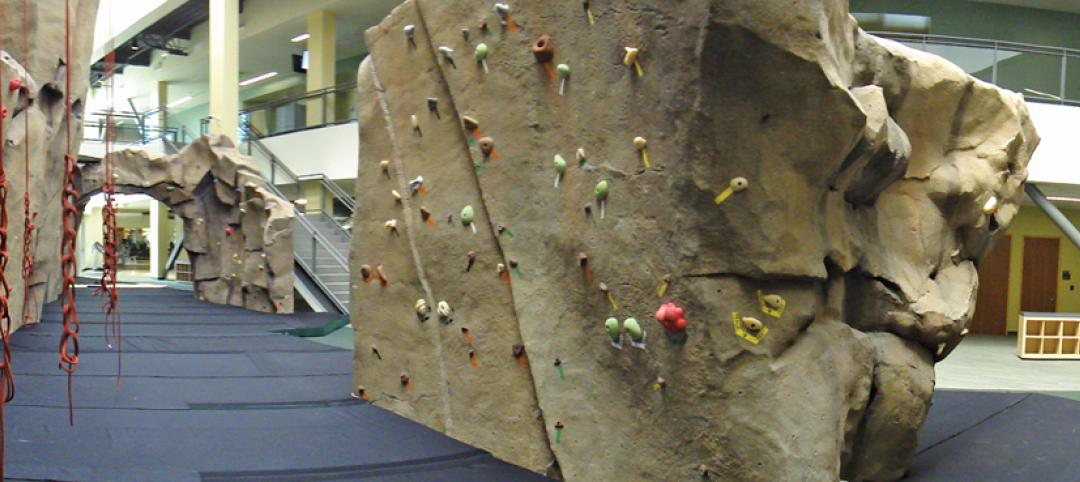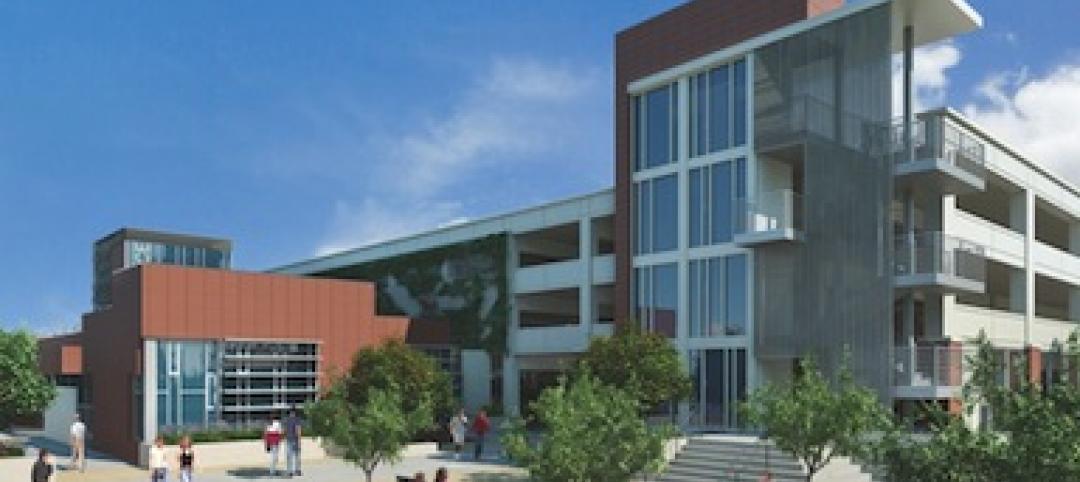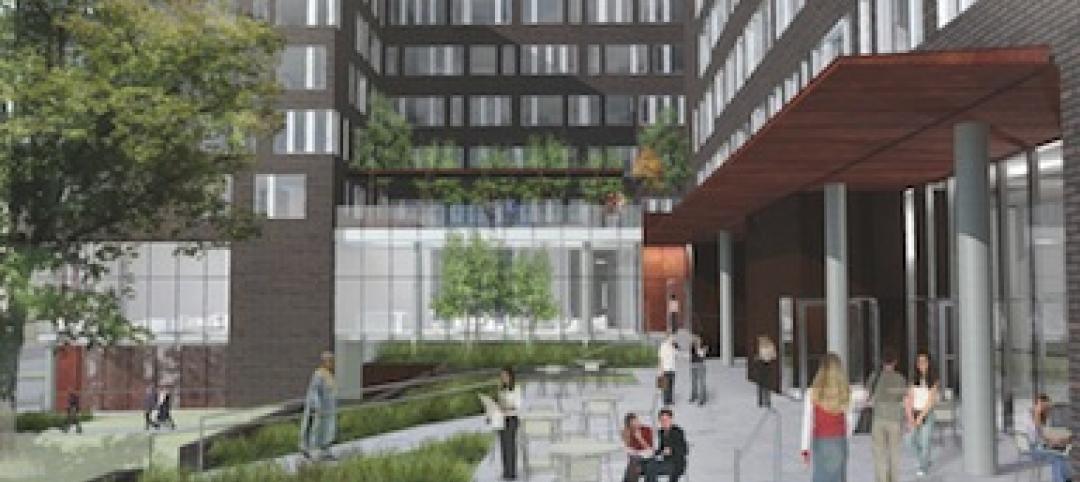In 1871, The Carondelet School, designed by Frederick William Raeder, opened to educate more than 400 children of laborers and manufacturers in St. Louis. It operated for a century before closing in 1976; it subsequently served as a private Christian school before going dark again in the 2000s.
The building is getting a second lease on life, as it has undergone a $2 million renovation by goBRANDgo!, a marketing firm for the manufacturing and industrial sectors, which moved its headquarters from Benton Park, as well as Conflux Co-Learning, goBRANDgo!’s nonprofit incubator, for what’s being called the nation’s first co-learning space where manufacturers and distributors can collaborate and share best practices.
GoBRANDgo! acquired the school in 2019 and launched Conflux a year later, soon after which it started hosting roundtables, webinars, and sharing information. The 26,000-sf Conflux Co-Learning building, with three stories and a basement, officially reopened last November, although some construction had yet to be completed at presstime. Financed with SBA 504 loans for small businesses, the renovation is adding an innovation lab, recording studio, and six teleconference rooms. GoBRANDgo!’s target is for Conflux Co-Learning to have 30 members by the end of 2022, and 100 within the next three years, according to Brandon Dempsey, a Partner with goBRANDgo!.
Right now, Conflux’s educational and collaborative programming is open to the industry. When BD+C spoke with Dempsey in mid-December, Conflux Co-Learning had just conducted a roundtable of 18 manufacturers and distributors on the topic of labor shortages. goBRANDgo! expected to have its first 10 members signed up by February 2022. Membership is $1,000 per month, and is currently confined to midsize companies with annual revenue of between $25 million and $250 million. Dempsey says that because the member companies, by and large, won’t compete, they will be freer to share information about how to drive sales, reduce waste, decrease costs, diversify their customer base, roll out new products, and cope with economic fluctuations.
Conflux Co-Learning also plans a series of guest speakers on a variety of topics relevant to its members’ businesses and growth. The center’s programming is being managed by Matt Menietti, goBRANDgo!’s Executive Director, who most recently served as Director of Innovation & Entrepreneurship for the St. Louis Regional Chamber.
In an interview with Entrepreneur Quarterly, Menietti characterized many of the companies that goBRANDgo! works with as “bedrocks of their communities.” The goal of Conflux Co-Learning, he explained, is “to bring these players together and provide them with meaningful content, relationships, and a community of support to help them thrive.”
Menietti said his organization has had discussions with industry leaders about workforce development. Dempsey elaborates that goBRANDgo! intends to launch an apprenticeship program that members could avail themselves of within the next two years.
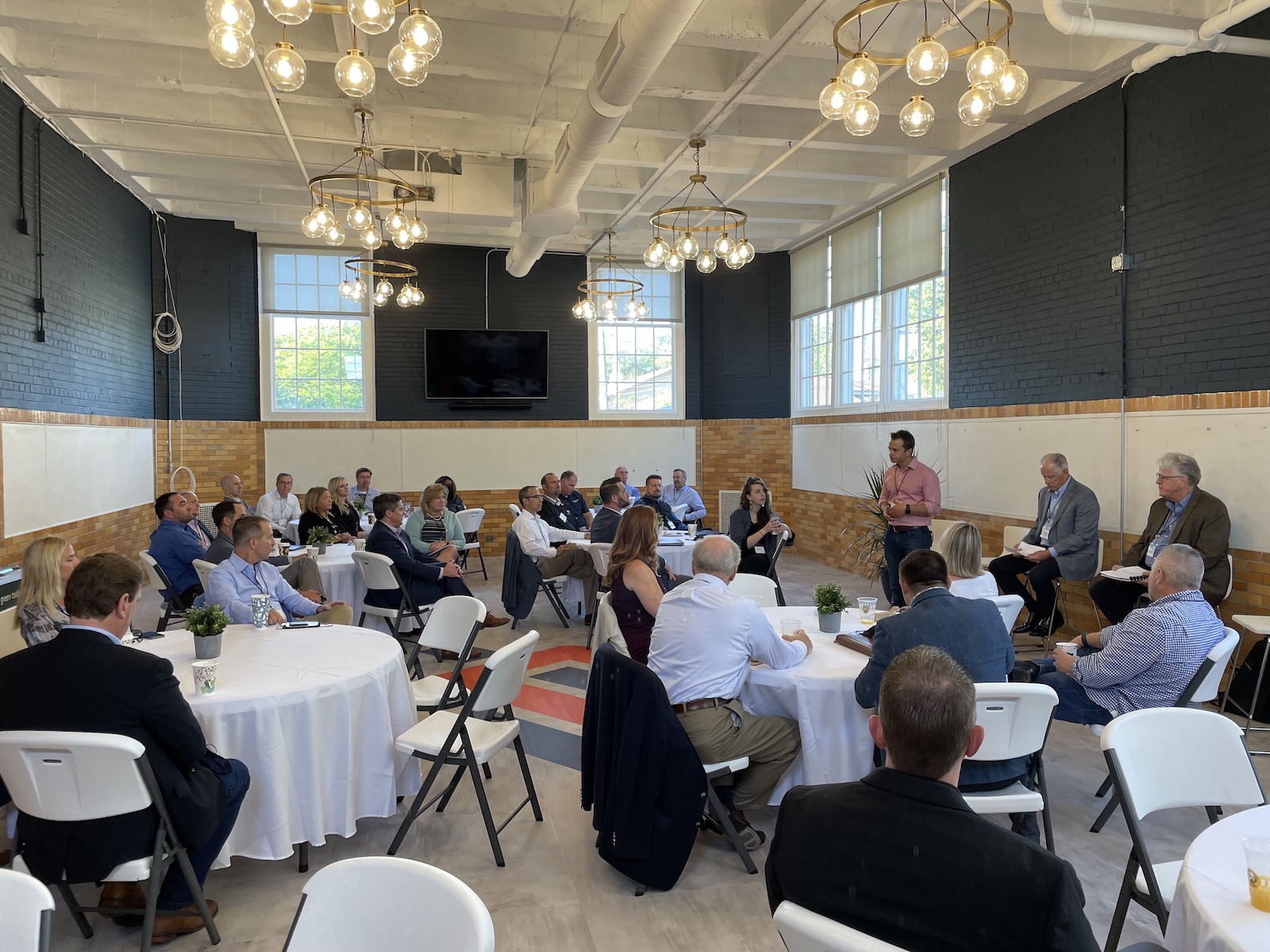
The team that renovated The Carondelet School included Eversoldt & Associates (architect), ReSTL Development (developer and CM), and PAP Engineering (engineer). The scope of the project included repainting the interior and upgrading some of the electrical and HVAC systems. The renovation focused on repurposed and reclaimed materials: Conflux recovered more than 50 tables and chairs from the demolition of the Missouri Botanical Gardens’ Ridgeway Visitor Center, and constructed more tables using reclaimed building materials from that demo.
The biggest part of the renovation, says Dempsey, was removing seven layers of flooring—held down by 650,000 nails, staples, and brads—and restoring the building’s hardwood flooring, more than 2,000 sf of which was built by hand.
Dempsey says he’s getting emails “every day” from companies that want to become Conflux members. The owner of a large, local pasta supplier recently toured Conflux Co-Learning and thought his company could hold its annual meetings there. If Conflux hits 50 members within a reasonable timeframe, Dempsey says he’ll know the concept is working, at which point he would consider expanding Conflux Co-Learning to other manufacturing/distribution hubs like Kansas City, Denver, and Nashville.
Related Stories
| Oct 13, 2010
Residences bring students, faculty together in the Middle East
A new residence complex is in design for United Arab Emirates University in Al Ain, UAE, near Abu Dhabi. Plans for the 120-acre mixed-use development include 710 clustered townhomes and apartments for students and faculty and common areas for community activities.
| Oct 13, 2010
New health center to focus on education and awareness
Construction is getting pumped up at the new Anschutz Health and Wellness Center at the University of Colorado, Denver. The four-story, 94,000-sf building will focus on healthy lifestyles and disease prevention.
| Oct 13, 2010
Community college plans new campus building
Construction is moving along on Hudson County Community College’s North Hudson Campus Center in Union City, N.J. The seven-story, 92,000-sf building will be the first higher education facility in the city.
| Oct 12, 2010
University of Toledo, Memorial Field House
27th Annual Reconstruction Awards—Silver Award. Memorial Field House, once the lovely Collegiate Gothic (ca. 1933) centerpiece (along with neighboring University Hall) of the University of Toledo campus, took its share of abuse after a new athletic arena made it redundant, in 1976. The ultimate insult occurred when the ROTC used it as a paintball venue.
| Oct 12, 2010
Owen Hall, Michigan State University, East Lansing, Mich.
27th Annual Reconstruction Awards—Silver Award. Officials at Michigan State University’s East Lansing Campus were concerned that Owen Hall, a mid-20th-century residence facility, was no longer attracting much interest from its target audience, graduate and international students.
| Oct 12, 2010
Cell and Genome Sciences Building, Farmington, Conn.
27th Annual Reconstruction Awards—Silver Award. Administrators at the University of Connecticut Health Center in Farmington didn’t think much of the 1970s building they planned to turn into the school’s Cell and Genome Sciences Building. It’s not that the former toxicology research facility was in such terrible shape, but the 117,800-sf structure had almost no windows and its interior was dark and chopped up.
| Oct 12, 2010
Full Steam Ahead for Sustainable Power Plant
An innovative restoration turns a historic but inoperable coal-burning steam plant into a modern, energy-efficient marvel at Duke University.
| Sep 16, 2010
Green recreation/wellness center targets physical, environmental health
The 151,000-sf recreation and wellness center at California State University’s Sacramento campus, called the WELL (for “wellness, education, leisure, lifestyle”), has a fitness center, café, indoor track, gymnasium, racquetball courts, educational and counseling space, the largest rock climbing wall in the CSU system.
| Sep 13, 2010
Community college police, parking structure targets LEED Platinum
The San Diego Community College District's $1.555 billion construction program continues with groundbreaking for a 6,000-sf police substation and an 828-space, four-story parking structure at San Diego Miramar College.
| Sep 13, 2010
Campus housing fosters community connection
A 600,000-sf complex on the University of Washington's Seattle campus will include four residence halls for 1,650 students and a 100-seat cafe, 8,000-sf grocery store, and conference center with 200-seat auditorium for both student and community use.


